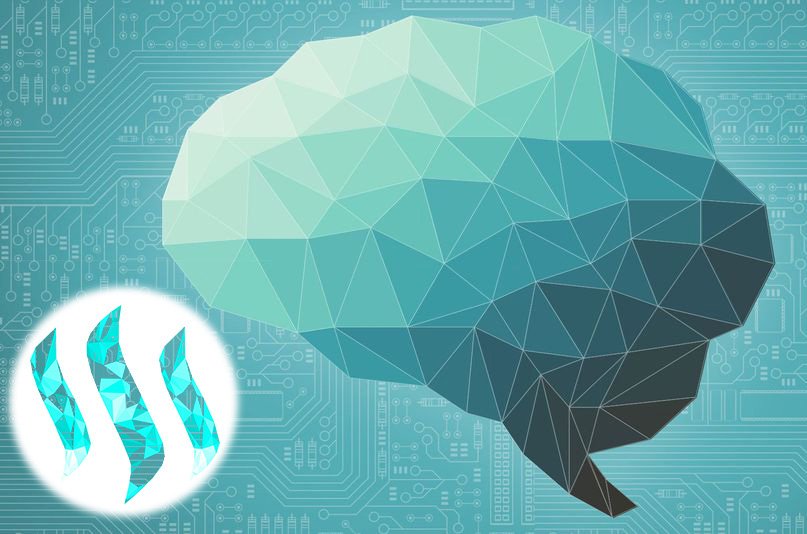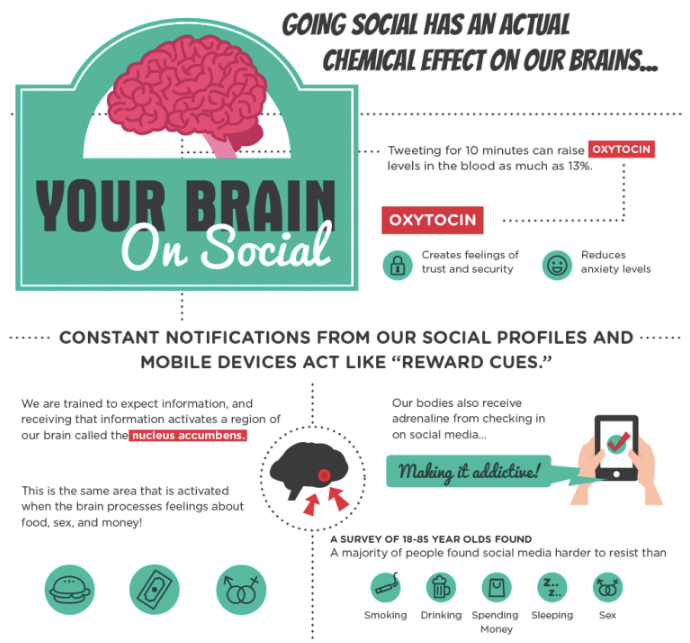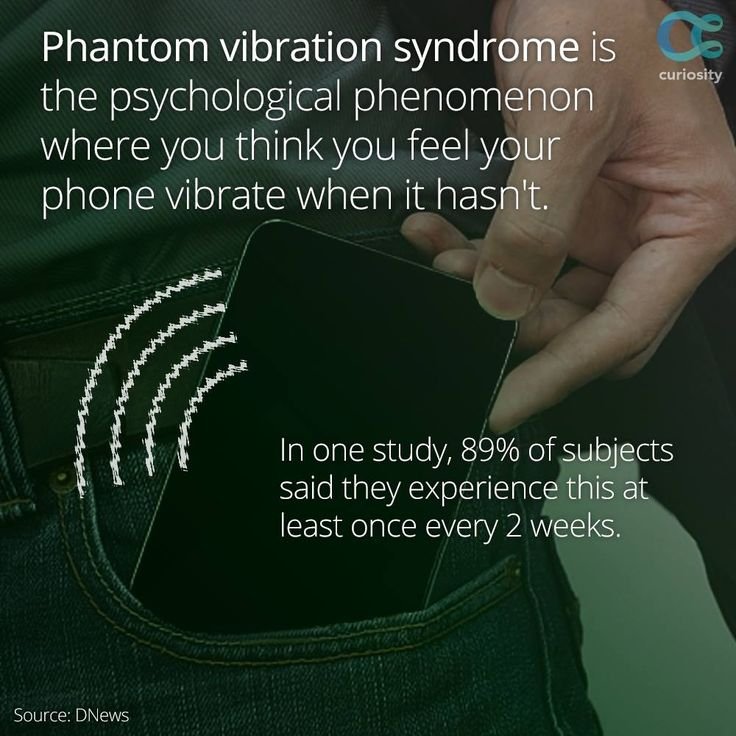
Today's world is ruled by technology and Social Media.
We can connect with anyone, anywhere in the world at any time.
We can look up any foreign word or historical event within seconds.
We can share pictures, experiences and other personal details on our own profiles.
We can check our E-Mails while skyping to a childhood friend at the other side of the world while looking up the next starbucks and then paying with our phone.
It's obvious that Social Media has taken a big role in many people's lives - but did you know that it actually changes and re-wires your brain?

Multitasking and Phantom Vibration
Studies have shown that people who constantly use the internet/social media on different devices are actually a lot worse at multitasking than others.
(Although you would generally assume that someone who switches a lot between different platforms and devices would be good at multitasking, right?!)
When you use mobile devices and surf the internet all the time, your brain's skills to filter out interferences diminishes. It can even lead to your brain having problems to transfer information to memory.
Nowadays, people get extremely easily distracted by a notification or vibration on their phone.

It has even gone so far that "Phantom Vibration Syndrome" has become a real thing - people think their phone has received a notification, when in reality, it didn't.
A study showed that 68% of the tested people experienced this sensation at least once every 14 days.
Researchers have concluded that our nervous system has been re-wired to perceive an itch as a vibration of our phone!
Internet Addiction
Studies showed that 5-10% of people who use Social Media and the internet regularly are actually addicted to it.
They are unable to control how much time they spend on the internet!

These people are psychologically addicted - although the internet is not a physical drug, researches have shown that these people show similarities with alcohol or cocaine addicts.
There is a degradation of white matter showing in areas that control attention, decision making and emotional processing..
Your brain is re-wiring itself and wants to receive a lot of the stimulations that social media give us.
Social media makes it easy for us to receive rewards (likes, interactions with friends etc) with very little effort, so our brain gets used to these stimuli and craves more.

Narcissism and Online Dating
Using Social Media and getting rewards in form of social interactions rewards our brain with Dopamine - the "happy" hormone that makes us feel good.
Brain Scans have also shown that we get rewarded more (and therefore feel happier) when we talk about our own views, opinion or stories, as opposed to others.
80% of the things people share on social media are essentially about their own experiences or opinions - while in a normal face-to-face talk, it's only 30-40%.
Everybody loves talking about themselves, so getting rewarded for this increases our narcissism.
Scientists have found out that couples actually like each other more if they don't meet in real life, but online instead!
While Online Dating was still a laughable topic a few years ago, the trend of successful relationship that started on the internet is actually continuously rising.
Social Media / Internet use is slowly taking over more and more of our lives.
It will be interesting to watch how this trend develops within the next decades! What do you speculate?

Images: Cover and Logo, 1, 2, 3, 4, 5
- Instagram -

© Sirwinchester
